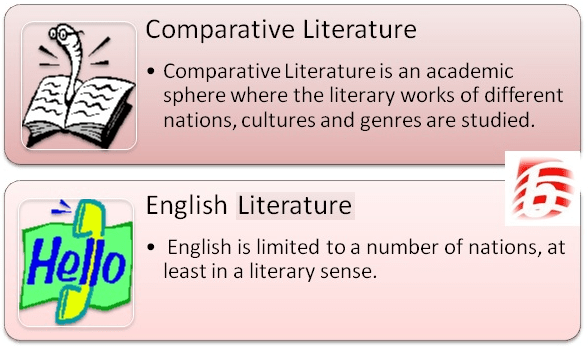Comparative literature vs English
Both Comparative Literature and English can be seen as academic branches that often follow a similar direction. However, there are key differences between the two. Comparative literature focuses on the study of world literature beyond borders, while English is generally limited to a number of nations, at least in a literary sense. The main difference between the two academic branches is that comparative literature transcends national and cultural boundaries, while English is typically confined to a national boundary. This article aims to clarify the difference between comparative literature and English while providing a basic understanding of the two terms.
Key Takeaways
- Comparative literature studies the literary works of different nations, cultures, and genres, while English literature focuses on British and American literature.
- Comparative literature is an interdisciplinary field that engages in comparison not only between different literatures but also between literature and other disciplines, such as social sciences, religion, history, and philosophy.
- English literature is more limited in scope, focusing on the literature of a select number of nations across history.
What is Comparative Literature?
Comparative literature, as mentioned earlier, can be referred to as an academic sphere where the literary works of different nations, cultures, and genres are studied. Initially, this discipline was limited to the literature of English, French, and German, but it has now expanded to include literary works from Europe to Africa. Comparative literature is an ever-expanding field of knowledge that pays attention to the literary works of the world throughout history. It engages in a process of comparison not only between the literature of different countries, cultures, and genres but also attempts to compare literature with other academic branches such as social sciences, religion, history, philosophy, etc., making it an interdisciplinary field of study. For example, when comparing literature with history, comparatists would attempt to locate the piece of literature in history, explore the social context, the movements that took place, the impact it had on contemporary literature, and try to gain a deeper understanding of the literature.
What is English Literature?
In contrast, English is slightly different. When we say English, it could either refer to the English language or English literature. Focusing on the language aspect of English, it has become indispensable for the modern world, as it has evolved into a global language with an ever-increasing number of English speakers who use it as their first language, second language, or even English as a foreign language. However, when looking at the literature aspect, English literature, unlike comparative literature, is rather confined as it mainly explores British and American literature. The scope of English literature is more limited, as it examines all eras of literary works from Shakespeare to Milton but does not offer as broad a perspective, as it discusses the literature of a limited number of nations across history.
What is the difference between Comparative Literature and English?
The main difference between comparative literature and English literature can be stated as follows:
- Comparative literature goes beyond borders, exploring the literary works across nations, cultures, and genres.
- It engages in a comparison not only between different literatures but also between literature and other disciplines.
- On the contrary, English is confined to a national boundary, at least in its literary aspects, where rather than providing a broad knowledge of world literature, it explores a single source of literature across time.
